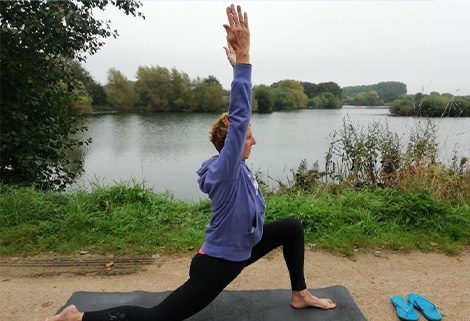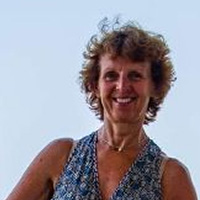decluttering our minds
Back in the day, when I was an Further Education College Lecturer, my yearly party piece was greeting my entire new student cohort (between 25-30 students) by their first names when they came back from their first coffee break on day 1 of the course. My ability to remember so many names in such a short time always drew a round of spontaneous applause. I’ve always found it easy to retain lots of (often useless) information and remember people’s names easily.
Looking back, I’m astonished by the amount of information I had to retain in my working and personal life, but we all do it; it sometimes feels as if our brains are full to bursting.
Nowadays, our desire to quantify and target so much of our lives can also add to information overload; we try to measure how many steps we walk, calculate our heart rates whilst exercising, count how many calories we consume and even record our sleep patterns.
We met a couple on a boat recently who had just picked their boat up from their home marina to cruise locally for a few days. When we told them we were liveaboards, we had the usual conversation about ‘what did you do with all your stuff’ and it transpired they lived in a 4 bedroomed house, had a motorhome and a caravan and 10 cars! They really wanted to be able to live on their boat, but couldn’t make the psychological leap to start to dispose of some of their possessions to realise that dream.
I can’t help but think, the more possessions we have, the more ‘brain space’ we need to maintain them and it’s only now we have so few possessions and such a simple life that I can live more easily in the present moment. I always struggled with the concept of living in the present whilst I was working; the idea of being ‘mindful’ seemed like an unattainable pipe dream. When I was teaching, most days involved planning ahead (living in the future) or analysing what I could have done better (living in the past). I rarely felt as if I was living my life in the present.
At this point in our lives, the things we need to think about and make decisions about are relatively few. Today, we walked a few miles along the towpath to find somewhere we can moor for a couple of weeks where we can walk into the nearest city to explore. Most urban mooring spots are for 48 hours only and we need somewhere that is less restricted.
We need to find the next water point, so we don’t run too low on water and to find a supermarket we can walk to as the freezer is running low and we need to stock up on fresh food too.

We also need to find a suitable yoga spot, preferably somewhere flat without too many passing dog walkers....dogs love to bark at us and jump all over us for some reason. Maybe it’s our downward dog pose they can’t resist ha ha! The couple we spoke to this morning kept saying how brave we are which is a comment often directed at us, but we don’t feel brave at all. For us, it’s just about the choices we’ve made that feel right for us.
I’ve said before that this lifestyle isn’t without its disadvantages, but such a simple life literally frees up masses of brain space.
That mental space brings a clarity to life where you can truly hear the birds singing or a boat chugging past; you don’t feel compelled to calculate how many steps you’ve walked each day as having to walk to the supermarket or work your way through a flight of locks is ‘exercise’ that is intrinsic to this lifestyle. Sleep generally comes easily; so much of our life is lived outdoors in the fresh air, so a 9.30pm bedtime is not unusual.
The irony of struggling to live in the present is that’s the only ‘place’ we can live, but life becomes so busy, it almost feels impossible. Work, family life, seeing friends and going to the gym fills our days and minds. The list of things to do seems endless; we lived that life for many years too.
Decluttering our minds takes awareness and is an opportunity to make different choices; within those choices is the freedom to learn new things, to discover new places and to meet new people. Simply having less to think about brings a mental clarity that allows us to live life as it unfolds and respond accordingly.
Clearly, it’s possible to declutter our minds without moving onto a narrow boat, but we need to find ways to do that which are compatible with a busy lifestyle and are suitable for us as individuals.
Some of the canal network is restricted at the moment due to low water levels, making route planning difficult; something we didn’t foresee when we moved on board. These challenges keep us mentally on our toes and mean we need to be adaptable and responsive to change.
We’re always conscious that life changes constantly and we need to be open minded to change, but decluttering our life has also allowed us to declutter our minds and truly live in the present.

